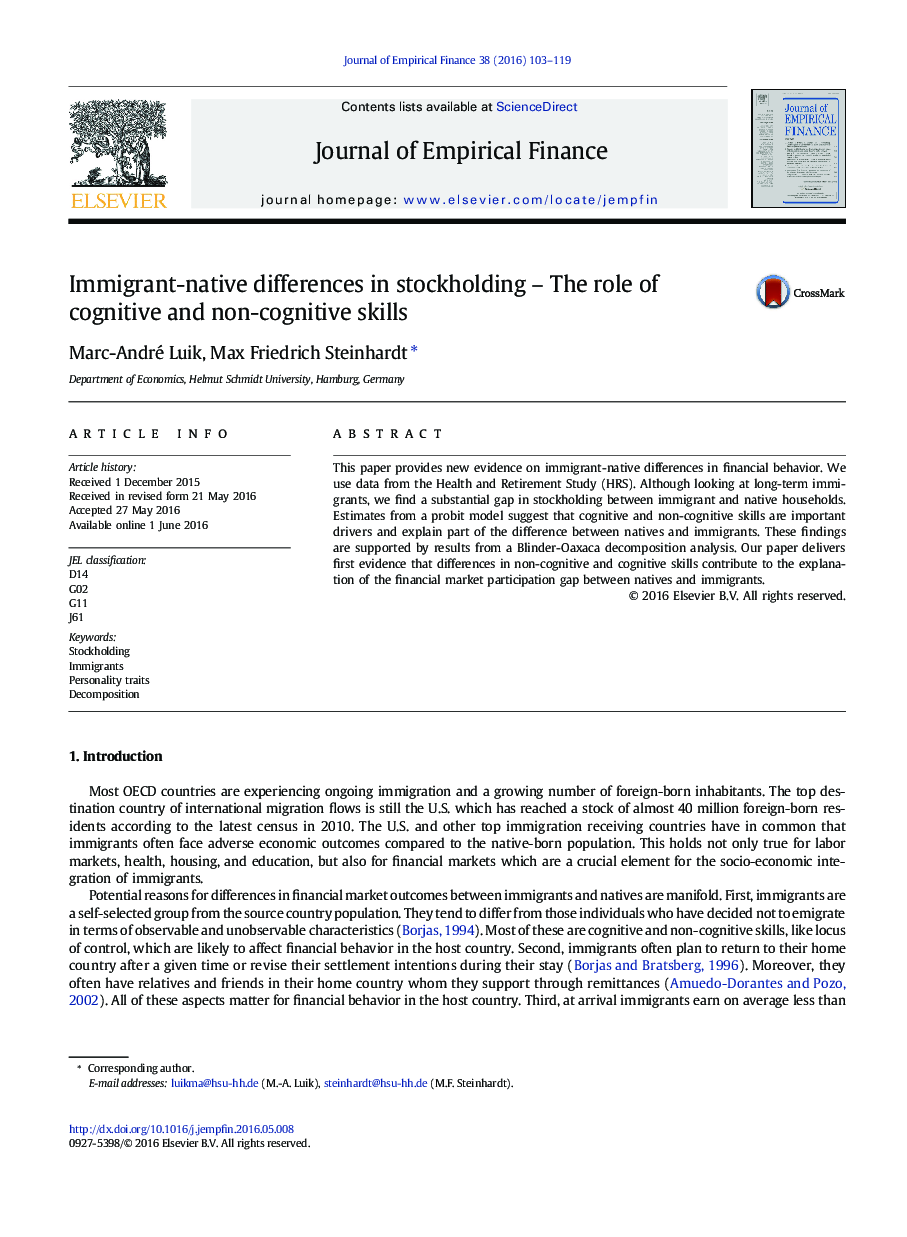| کد مقاله | کد نشریه | سال انتشار | مقاله انگلیسی | نسخه تمام متن |
|---|---|---|---|---|
| 958626 | 1377212 | 2016 | 17 صفحه PDF | دانلود رایگان |
• We study the stockholding behavior of immigrant and native U.S. households.
• We find a substantial immigrant-native gap in stockholding.
• Personality traits and economic preferences are significant predictors of stockholding.
• Differences in non-cognitive and cognitive skills are important factors in explaining the stockholding gap.
• Citizenship acquisition and intermarriage is associated with assimilation in stockholding behavior.
This paper provides new evidence on immigrant-native differences in financial behavior. We use data from the Health and Retirement Study (HRS). Although looking at long-term immigrants, we find a substantial gap in stockholding between immigrant and native households. Estimates from a probit model suggest that cognitive and non-cognitive skills are important drivers and explain part of the difference between natives and immigrants. These findings are supported by results from a Blinder-Oaxaca decomposition analysis. Our paper delivers first evidence that differences in non-cognitive and cognitive skills contribute to the explanation of the financial market participation gap between natives and immigrants.
Journal: Journal of Empirical Finance - Volume 38, Part A, September 2016, Pages 103–119
